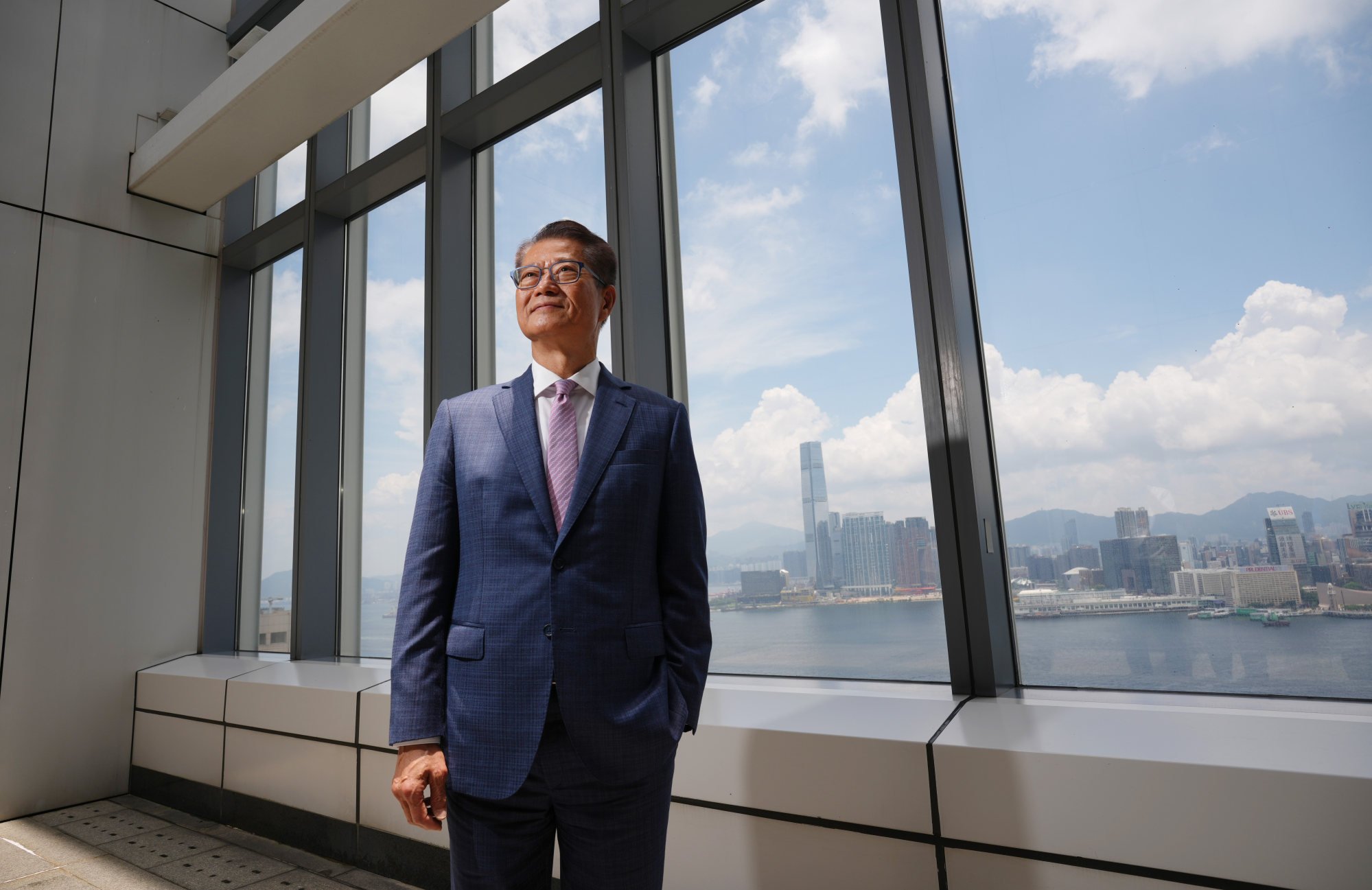“We hope Cathay Pacific Airways will continue to improve service quality and support and enhance Hong Kong’s status as an international aviation hub,” Chan wrote in his weekly blog.
“Looking forward, local airlines should actively expand their route networks in response to the needs of economic development, business connections and public travel and facilitate the country’s Air Silk Road strategy.”
The “Air Silk Road” is the aviation connectivity part of President Xi Jinping’s Belt and Road Initiative, a China-centred trade network covering more than 100 countries.
Chan said the aviation corridor would spur bilateral trade with these countries.
Xia urged the authority, which manages the international airport, to leverage its unique advantages under the “one country, two systems” governing principle and to continue contributing to national development.

The financial secretary said he also expected more business exchanges and closer ties between Hong Kong and the Middle East after Cathay relaunched a direct flight to Saudi Arabia’s capital, Riyadh, in October.
The relaunch will come months after a connection between the kingdom and Shenzhen, which got its first non-stop flights to the city on June 3 via China Southern Airlines, while Guangzhou also has direct services to Kuwait and Riyadh.
“More convenient transport between the two places will definitely strengthen closer exchanges between the two markets, bring together more new funds and create more new opportunities for Hong Kong’s financial market,” he said.
Cathay announced on Friday that it would buy back the remaining half of preference shares issued to the government, worth around HK$9.75 billion, and pay remaining dividends amounting to HK$2.44 billion up to July 31.
The shares were part of a government-led bailout in 2020 with a HK$39 billion recapitalisation package for Cathay, as the airline financially struggled amid a collapse of the global travel market.
The first half was bought back in December last year.
Chan said in his blog Cathay’s ability to fully take back the shares “marked the steady return of Hong Kong’s aviation industry to full normality”.
The finance chief said that, in 2020, the government had taken into account the overall interests of Hong Kong society, especially the need to maintain the city’s status as an international aviation hub, before investing HK$27.3 billion, comprising HK$19.5 billion for preference shares and HK$7.8 billion in bridging loans, in Cathay.
“This special investment arrangement made under such an extraordinary period achieved win-win results,” he said.
“On the one hand, Cathay gained financial liquidity, was able to survive its difficulties, and restore capacity fairly quickly.
“At the same time, this investment brought a return of nearly HK$4 billion to our coffers.”
Cathay in March reported a net profit of HK$9.78 billion last year, its first since 2019, after a net loss of HK$6.62 billion in 2022.
The company earlier pushed back its original plan to return to 100 per cent passenger capacity from the end of 2024 to the first quarter of 2025.
The Post has contacted Cathay for comment.

